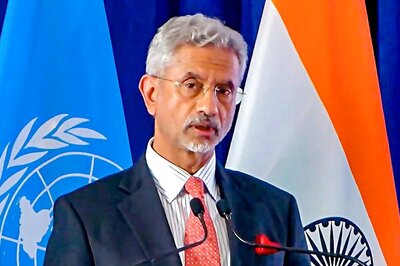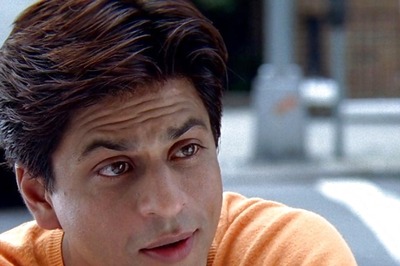No, Corrupt Politicians Can't Be Solely Blamed for The IAS Losing Its Way: Former RBI Guv D Subbarao

views
While political interference, the recruitment examination, induction training, among other things are blamed for the current malaise in the country’s administrative force, it is the lack of incentives and penalties in the system which is leading to the falling reputation of the once highly esteemed IAS officers, writes former RBI governor Duvvuri Subbarao for the Times of India.
Subbarao, an ex-bureaucrat himself, wonders whether the ‘IAS has failed the nation?’ He wishes the answer were a resounding ‘no’, but opines that it is not the case.
“The public perception of the IAS today is of an elitist, self-serving, status quo perpetuating set of bureaucrats who are out of touch with reality, who wallow in their privileges and social status and have lost the courage of conviction to stand up for what’s right,” he says.
According to Subbarao, it wasn’t always like this. Describing the time he joined as a fresh entrant into the service in the mid-1970s, he says that if the government was being attacked by the opposition on a scam or a scandal, all that the CM had to do was to stand up in the Assembly and announce that he would appoint an IAS officer to inquire into the matter. “That was enough to shut out the debate. Today if a CM said that, she is likely to be booed,” he says.
The former IAS also finds it difficult to put a ‘precise date on when the decline started’. He says When the IAS was instituted soon after Independence as a successor to the colonial era ICS, it was seen as the home grown answer ‘to the enormous task of nation building in a country embarking on an unprecedented experiment of anchoring democracy in a poor, illiterate society’.
The IAS was viewed as the delivery arm whether it came to anything from agricultural development to enforcing the rule of law, he says. And it was IAS officers who led this effort from the front, Subbarao says, by building an impressive development administration network from ground zero. According to him, the officers earned for the service a formidable reputation for competence, commitment and integrity.
But that reputation began unravelling in subsequent decades, Subbarao says, as ‘the IAS lost its ethos and its way.’
The former bureaucrat says that subsequently, ‘ineptitude, indifference and corruption had crept in’. He says whil the negative stereotype view was shaped by a minority of officers who have gone astray, the worry was that that minority was no longer small.
“A CM once told me that of the IAS officers at his disposal, about 25% were callous, corrupt or incompetent, the middle 50% had happily turned into sinecures and that he had to depend on the remaining 25% to get all his work done,” he says.
He says that while the standard scapegoats for the malaise in the IAS are the recruitment examination, the induction training and subsequent in-service training, limited opportunities for self-improvement and indifferent or even callous career management, the biggest problem was a deeply flawed system of incentives and penalties.
“The service still attracts some of the best talent in the country, and young recruits come in with sharp minds and full of enthusiasm to ‘change the world’. But soon, they become cogs in the wheels of complacency and acquiescence, turn lazy and cynical, and worse, lose their moral compass,” he explains.
IAS officers would like the world to believe that this happens because of politicians standing in the way of their delivering results. You can’t miss noticing that most IAS memoirs are, at heart, tales of: “I was going to do great things but politicians came in the way and stopped me.”
Subbarao, while not wanting to trivialise the challenge of political interference, says that in a democracy, it came with the territory. But to blame politicians for the intellectual and moral decline of the IAS is self-serving, he opines. According to him, no political system no matter how venal, can corrupt a bureaucracy if it stands united and inflexibly committed to collective high standards of ethics and professional integrity. “Sadly, that’s not been the IAS story,” he says.
Delving deeper into the problem with incentives and penalties, he says when everyone gets promoted by efflux of time, there is no pressure on officers to perform and deliver results. According to him, in a system where the smart, enthusiastic and capable are not assured of rising to the top, and the corrupt, lazy and incompetent don’t get weeded out, there is no motivation for officers to upgrade their knowledge and skills. “A system that promotes mediocrity and risk aversion rather than innovation and change sinks to a low common denominator as indeed the IAS has,” he says.
K Yatish Rajawat, CEO, Center for Innovation in Public Policy, in piece for News18 published earlier had also called for a big reformation in the bureaucratic system for India to reach its goals. Making a similar argument for meritocracy in the system, Rajawat had said that systemic focus needed training and building capacity at all levels, not hoping that the intelligent few on the top would ensure execution.
“Currently the focus of capacity building programmes in the government is on Class A employees. The remaining rungs of a system that employs more than 20 million people are not seen as important enough to train. The rules of the system are made by top echelon for the benefit of the top, so efforts around linking promotion to performance are resisted, and promotions are linked to tenure or period,” he had said.
IAS officers should also refrain attempting to boost their public image through social media, Mysuru MP Prathap Simha, writing for News18, had earlier opined.
“In my own experience, I have come across a few IAS and IPS officers who are actually corrupt and incompetent, yet have an impeccable, crusader image in the public eye, courtesy the power of social media. These officers are least interested in serving the people. For them everything is an image building opportunity, which helps them in getting bigger, better, lucrative postings or works as a ladder to enter politics one day. Some of these characters are arrogant, indifferent and corrupt in their personal lives. Some use the fake clean image as a cover to hide all their nefarious activities. When a politician like me or a vigilant citizen questions them or demand accountability, these officers use their social media enabled image to discredit us, claiming they are honest and innocent, being targeted by corrupt and wily politicians,” he had said.
Read all the Latest News India and Breaking News here




















Comments
0 comment